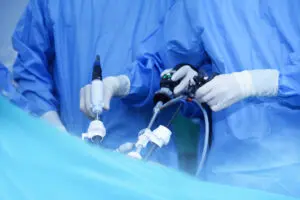If you are someone suffering from extreme shoulder pain which limits your everyday activities, you may be avoiding any thought of treatment. You may think it will involve a lengthy complicated surgery and recovery. Fortunately, this is not necessarily the case. You can be treated with minimally invasive arthroscopic shoulder surgery.
Common Arthroscopic Shoulder Surgeries
The types of shoulder surgeries most frequently performed using the minimally invasive arthroscopic techniques include a torn rotator cuff injury, tendonitis, shoulder impingement, a torn labrum, shoulder instability, and arthritis.
Although these seem like serious shoulder problems which require traditional surgery, Dr. Samuel Koo can treat these issues using a minimally invasive technique.
Benefits of Arthroscopic Shoulder Surgeries
Rather than a long hospital stay, you will only be in the hospital for the day and go home after the surgery is completed. There is no overnight stay needed.
Instead of a large incision and scar with traditional surgery, you will only sustain small incisions the size of a keyhole.
You will have a faster recovery with less complications.
There are less risks with minimally invasive surgery techniques.
How Minimally Invasive Arthroscopic Surgery Is Performed
This surgical technique allows patients to recover quickly, and there is no need to stay in the hospital. The word arthroscopy comes from the Greek “arthro” meaning joint, and “skopein” meaning to look. So arthroscopy means: to look within the joint.
A small incision is made to allow for the arthroscope or tiny camera to be inserted. Another small incision is created for the instruments. The camera shows the details of the injury on a computer screen for Dr. Samuel Koo to observe and perform the treatment. Since both the instruments and camera are small and thin, the incisions are small allowing for a more rapid recovery time.
The procedures take less than an hour. You will experience some pain and discomfort for several weeks post surgery. Recovery time varies depending on the type of surgery performed. You might find it more comfortable to sleep in a recliner than in bed.
Potential but very rare complications can occur like infection, excessive bleeding, blood clots, and damage to blood vessels or nerves.
Follow all the post-operative instructions for a smooth recovery.
Contact Dr. Samuel Koo at (425) 823-4000 if you have tried other non-surgical treatments, but you still have shoulder pain and limited movement. We can help you find relief in Seattle, WA.





